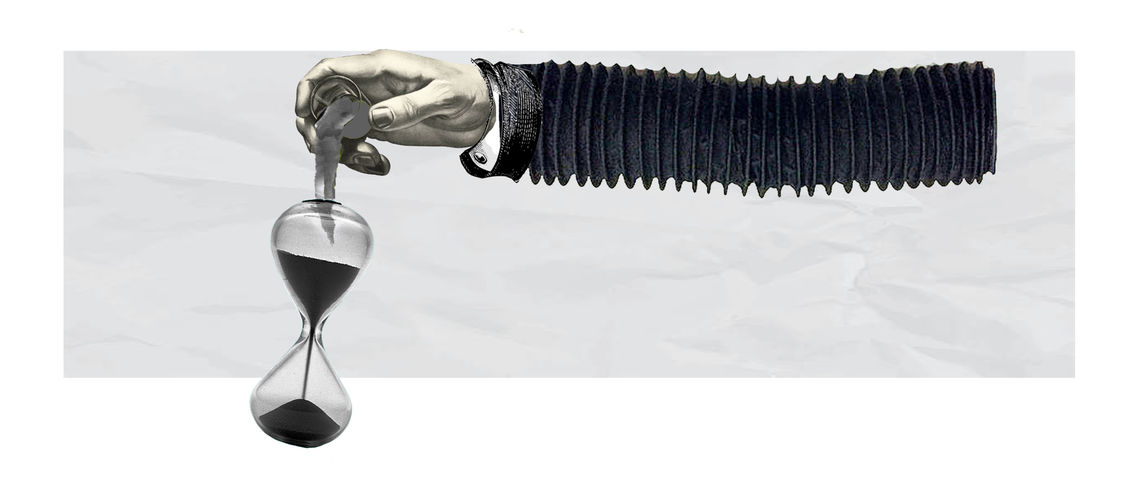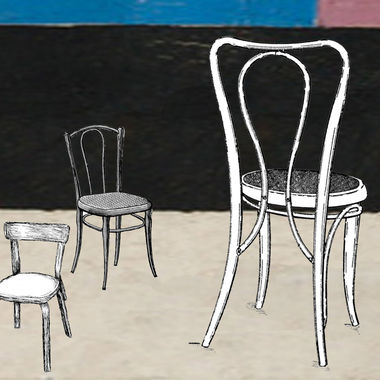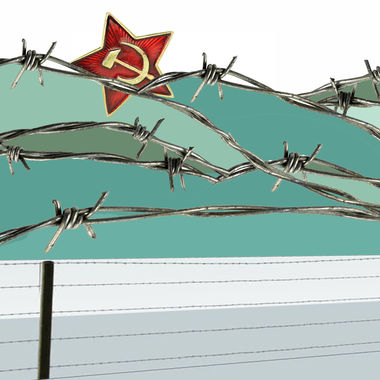The Aliyev regime is profoundly frustrated. This frustration, however, is an inherent byproduct of Baku’s illusions of grandeur and the awkward hubris that has consumed Ilham Aliyev. Framing the developments after the 2020 Artsakh War as a total victory, the Aliyev regime constructed a three-tiered narrative: the Karabakh issue has been resolved; Baku is the most powerful actor in the South Caucasus; and Armenia is a weak and defeated state. Weaponizing these conceptual points, Aliyev has attempted to achieve two broad objectives: force Armenia into a final peace treaty that is profoundly on Azerbaijan’s terms and utilize the current power disparity to methodically and continuously subjugate Armenia. Overarchingly, seeking to strike while the iron is hot, Baku is endeavoring to orchestrate the leverage it gained after the 2020 war to not only absorb all of Artsakh, redraw borders and impose its will upon Yerevan, but it is seeking to do all these things in order to exercise long-term preponderance over Armenia. In essence, Baku’s grand strategy is a multi-tiered approach that is not simply designed to resolve the Karabakh issue, or to gain a few kilometers here and there in border areas, but just as importantly, to utilize these “new facts” as strategic developments through which they can posture as a sub-regional hegemon and exercise long-term dominance over Armenia.
The operationalization of this multi-tiered strategic approach has relied on three methods: 1) infringing upon Armenia’s sovereign territory to instigate internecine clashes and thus destabilize Armenia proper; 2) maintain the imbalance in power by perpetuating localized and controlled acts of aggression, thus forcing Armenia to divert resources from military reforms and development in order to deal with Baku’s provocations; and 3) obstruct Armenia’s capacity to recover and grow, both militarily and economically, by manufacturing crises that are cost-efficient for Baku, but burdensome for Yerevan. The continuous clashes and acts of provocation on the border regions, therefore, must be primarily assessed and understood through this prism. So why is Aliyev frustrated and even fearful? Because the grand strategy does not appear to be working. To revert to the analogy, the iron is cooling, and Baku is fearful that with each passing day it is losing time and opportunity.
Why hasn’t this grand strategy worked, and does Baku have illusions of grandeur when it sees itself as a sub-regional power?
Several indicators clearly address, at the moment, why the Aliyev regime’s strategy is both stagnating and failing to achieve its objective. First, the assumption that the Karabakh issue is resolved is both untenable and nonsensical, but more to the point, the most powerful actor in the region, Russia, does not consider the issue resolved. In this context, Baku’s narrative, which is designed to provide the foundational justification for “Azerbaijanizing” Karabakh, has failed. But just as importantly, this has created a new cleavage in Russia-Azerbaijani relations, as Baku finds itself continuously frustrated by Russia’s refusal to not only accept Baku’s narrative, but to actually construct one of its own. In this context, Baku’s grand strategy, designed as Armenia-centric, has fundamentally ignored Russia’s stubborn presence, and more so, Russia’s desire to dictate to some degree the terms of the Karabakh issue.
This has recently created much friction between the Aliyev government and Moscow, for Baku has expressed anger at the Russians for serving more as protectors of Karabakh Armenians rather than as neutral peacekeepers. Further expressing their concerns, the Azerbaijani Ministry of Defense released a statement directly accusing Russia of transporting Armenian soldiers and weaponry into Karabakh. But more tellingly, the Aliyev government is projecting what has become an obvious case of insecurity vis-a-vis Russia, as the statement makes certain to consistently refer to the Russian presence as “temporary.” The prevailing logic, and one that is an open secret, presupposes that Russia has broader plans for the territory and is engaging in behavior that clearly indicates its presence will very likely be long-term. The Azerbaijani Ministry of Defense’s direct reference to Russia’s presence as being “temporary” appears to have hit a nerve within Moscow, for what followed was a first: Moscow directly accused Azerbaijan of violating the terms of the ceasefire. Noting that such acts of localized aggression have been common, the fact that Russia, for the first time, concretely blamed Baku for the ceasefire violation remains a very important indicator. Further feeding Aliyev’s growing insecurity is the development of a separate set of Russian interests that are now serving as counterweights to Baku’s interests, which include, but are not limited to, the structuring of Russo-Karabakh interests that are also separate from Yerevan’s interests. Namely, Russia’s policies are not so much aligned with Yerevan’s preferences, although there may be some overlap, but rather driven by asserting Russian soft power in the territory. Most recent examples of obstructing Baku’s attempts at collectively punishing the Armenian population by cutting off water resources, or presenting data to counter Aliyev’s claim that only 25,000 Armenians live in Karabakh (as opposed to 125,000) suggest not only a growing rift between the two actors, but also a further reification that components of Aliyev’s grand strategy are falling apart.
These developments, in turn, have obstructed Baku’s second objective, which was designed to draw a relatively weakened Armenia into deeper military conflict by having Azerbaijani units infringe upon Armenia’s sovereign territory. The strategic positioning of Azerbaijani soldiers on the territories of Armenia-proper is constructed as a schematic maneuver to elicit a proportional response from Armenia, thus amplifying the crisis and increasing the costs for Yerevan. Yerevan’s measured and astute response, in this specific instance, spoiled Baku’s designs. To mitigate this shortcoming, Baku has determined since mid-July 2021 to elevate the violence, instigating clashes both against Nagorno-Karabakh and the Republic of Armenia. Armenia’s proportional response to these recent instigations, however, have not gone unnoticed, and there is concerns within Aliyev’s circles that Armenia’s military reforms may be bearing fruit, and that the positional strength of the Armenian forces, relative to four months ago, is stronger than anticipated, considering its ability to pushback Azerbaijani attempts at advancements in Gegharkunik, Yersakh, and Sev Lich. In this context, from Baku’s lens, what was assumed to be a weakened army that can be easily subjected to bullying actually appears a lot more capable.
Concomitantly, the more Armenia defends itself, that is, the more Armenia refuses to acquiesce to Aliyev’s preposterous demands, the more cross-border violence and intensity of fighting should be expected. To return to our analogy, the number one tactical objective of Baku is to keep the iron hot. That the iron may be cooling could further explain not only the intensification of Baku’s aggression, but also Aliyev’s growing insecurity, concealed in his bombastic claims and awkward hubris. In a recent interview, he not only threatened a new war, but also displayed anger at the fact that Armenia’s military reforms and the process of rebuilding a modern and efficient army is a serious fear within Baku. And more explicitly, Aliyev directly asserted his immense concern at Russia’s role in modernizing Armenia’s armaments. The overall picture, in this sense, displays a strategic blueprint that was designed to exploit Armenia’s vulnerabilities and, based on the degrees of such exploitation, reduce Armenia to a state of subservience vis-a-vis Baku’s irredentism and stipulations. Because this strategic endeavor has stagnated, and parts of it are in essence failing, Aliyev is shifting policies to account for his frustration by directly critiquing Russia and increasing the military costs for Armenia.
A common mechanism for Baku prior to the 2020 Artsakh War was a protracted war of attrition, through which they used hybrid warfare and grey zone tactics to exhaust Armenia through armament and human cost. The underlying logic of this doctrine assumed that time was on Azerbaijan’s side and, as such, the protracted war of attrition was designed to soften Armenia for an eventual invasion. In the current situation, while tactical similarities are observable, the one big difference is that time is not on Azerbaijan’s side. As the victor, it is seeking to fully consolidate its victory on all fronts before the defeated party has time to recuperate. To this end, Baku is utilizing a two-track approach: proceeding under the logic of striking while the iron is hot, while also creating conditions under which Armenia cannot sufficiently recuperate. Aliyev clearly understands that, at this point, Yerevan has no definitive solutions to the problems that Baku is creating. To this end, until Armenia develops deterrence capabilities, maximum pressure remains Baku’s strategic approach. His frustration, however, is being multiplied by the fact that the maximum pressure campaign is not achieving its set objectives. As such, his only other option is to further amplify the intensity of the crisis.
Just as important to the scope of our analytical assessments is Aliyev’s fear that an Armenia whose economy has rebounded, and one that can actually undertake exponential growth, remains a grave threat to Baku’s regional plans. A clear indication of this was Aliyev’s anxiety over the €2.6 billion grant package that the European Union announced it will be allocating to Armenia. Considering the scope and breadth of the assistance plan and the clear indicators of the extent to which this will grow Armenia’s economy, Baku remains inherently frustrated at the potential of a rapidly-developing Armenia. Aliyev’s display of anger at the European Union confirmed this, as he not only questioned the fairness of the aid package (considering Azerbaijan only received €150 million), but more importantly, the fact that the aid package was structured as the European Union's response to the war. In this context, the EU’s position made it obvious that its support for Armenia was defined by reinforcing Armenia’s economic growth, which remained intertwined with Armenia’s democratic progress. For the Aliyev regime, the infusion of this much capital into Armenia is a further indication that time is not on its side, and so the incentive to further inflame and heighten the crisis remains the most rational option.
The Aliyev regime’s biggest fear, therefore, is the rapid recovery of Armenia, an Armenia that can rebuild its military through efficient reforms and modern Russian armaments, an Armenia with a growing economy through billions in European financing, and an Armenia that is trying to strengthen democratic culture. The Aliyev regime’s multi-tiered grand strategy is precisely designed to obstruct these developments; the border infringements, the provocations, the internecine violence and threats of war are designed to hamper and obstruct Armenia from rebuilding and becoming stronger. The prevailing logic, in this context, is quite straightforward; to exercise long-term preponderance over its enemy, Azerbaijan needs an Armenia that is constantly in flux, crises and chronic instability. In order to have such developments consume and be a consistent part of Armenia’s reality, Baku must consistently manufacture modalities of crises and, to the best of its abilities, control the scope, magnitude and intensity of these crises. The current behavior of Azerbaijan is precisely consistent with such assessments. But let’s be honest: from the lens of power politics, this is rational behavior. This is what a victor is supposed to do. However, because things are not going exactly as Aliyev envisioned, and that important components of his grand strategy are falling apart, rational behavior is giving way to hubris, frustration and illusions of grandeur.











